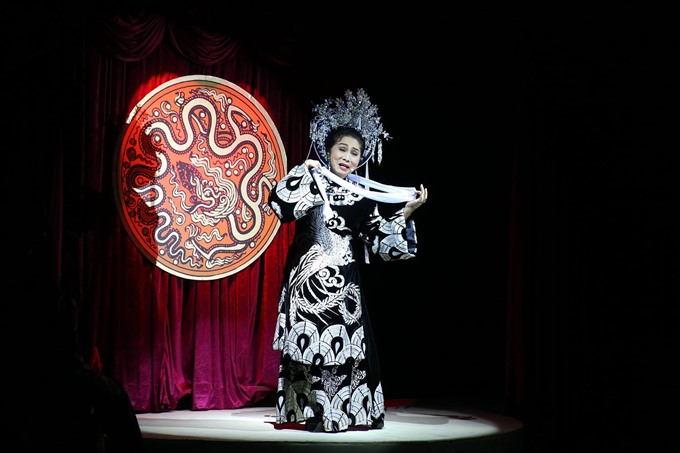[ad_1]
 |
| People’s Artist Bạch Tuyết, a guru of cải lương (reformed opera), a part of the southern region’s traditional music that began 100 years ago. Photo courtesy of Chợ Lớn Theatre |
HCM CITY — People’s Artist Bạch Tuyết will offer online training in cải lương (reformed opera), a genre of southern traditional theatre, for young people next month as part of the city’s Theatre Artists Association’s celebration of 100 years of the art form.
Tuyết, who is considered a cải lương guru, and has spent more than 60 years on the stage, said her courses would provide participants with performance skills in singing vọng cổ (nostalgia tunes) and cải lương.
“I hope my experience will help young people worldwide love and understand traditional Vietnamese music and theatre,” said the 74-year-old who has written many documentaries and books on cải lương.
“To preserve this art, we need to expand it among young generations,” she said.
Tuyết said her training would also help participants learn more about the country’s culture and lifestyle through vọng cổ and cải lương.
Vọng cổ songs and cải lương plays are always performed at traditional festivals and anniversaries in the Cửu Long (Mekong) River Delta provinces of Cần Thơ, Sóc Trăng, Cà Mau and Bạc Liêu.
Vọng cổ songs feature the hopes and dreams of southern people. These songs are used in cải lương and are popular among farmer families, who love singing vọng cổ after a hard day of working in the fields.
Tuyết has performed in Đêm Hoa Lệ (Wonderful Night), a cultural programme that offers cải lương (reformed opera) and hát bội (classical drama) shows every week at Chợ Lớn Theatre in HCM City’s District 5.
The event, which began in March, is aimed at students and tourists
Tuyết has worked with 50 veteran and young artists, many of them from the leading Trần Hữu Trang Cải Lương Theatre, to stage excerpts from historical plays such as San Hậu ((The Reign) and Thái Hậu Dương Vân Nga.(Queen Mother Dương Vân Nga).
The artists also perform songs and dances of cải lương, which feature the culture and lifestyle of Sài Gòn in the 1950s and 60s.
“I believe cải lương will attract younger audiences if it offers shows in a new and modern style,” Tuyết said. — VNS
[ad_2]
Source link
